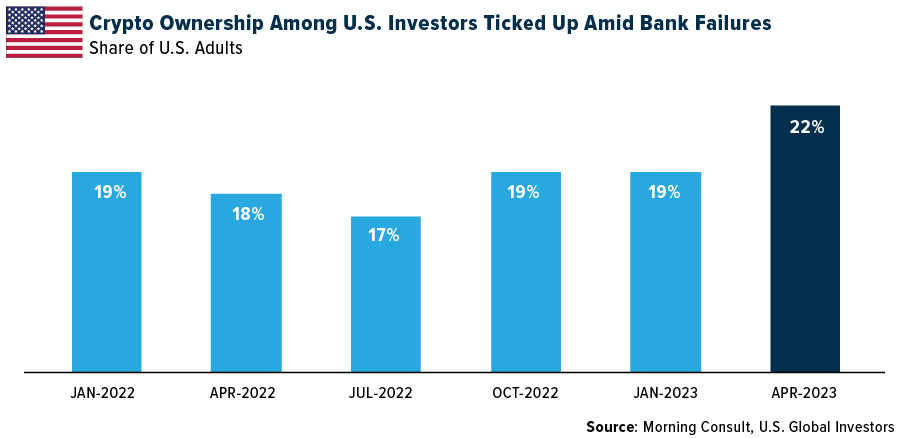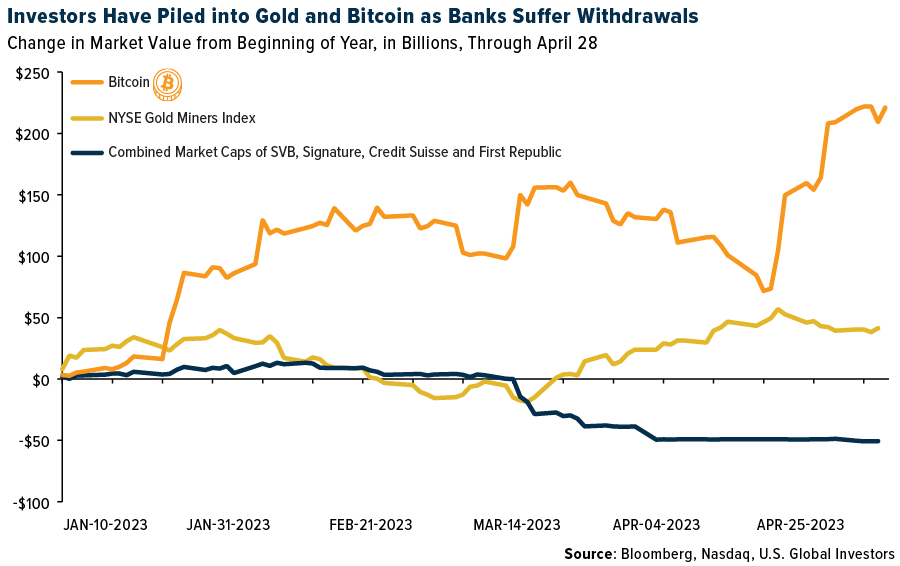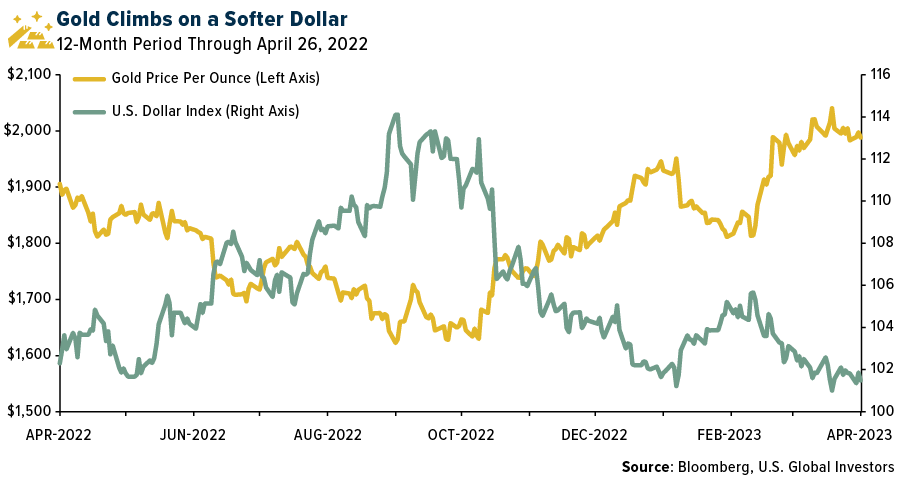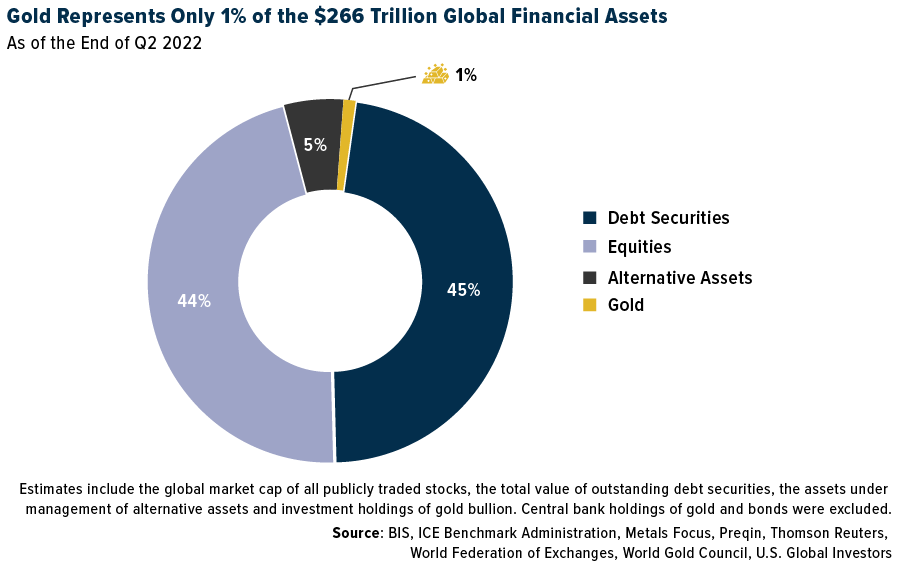Cryptocurrency adoption in the U.S. increased amid fears of a full-blown banking crisis, a new poll finds. According to Morning Consult, 22% of Americans, over one in five, said they owned at least one form of crypto in April, representing a four-percentage-point increase from January.
Not surprisingly, Bitcoin was the most widely held digital asset in April, with 16% of respondents saying they owned some of it. That’s up from 13% a year earlier. Ethereum was the number two asset, with 12% ownership in April 2023, followed by Binance Coin and Tether, at 8% each.

I must point out, though, that many people would take issue with Bitcoin being labeled a “crypto”; even Securities and Exchange Commission (SEC) Chairman Gary Gensler and Commodity Futures Trading Commission (CFTC) Chief Rostin Behnam have both described the world’s biggest digital asset as a commodity.
Traditional Finance Under Pressure?
Again, the increase in crypto ownership was likely tied to ongoing market jitters involving the banking industry—in particular, the failures of Silicon Valley Bank (SVB), Signature Bank and, more recently, First Republic Bank (NYSE:FRC).
San Francisco-based First Republic became the third U.S. bank to fail this year, making it the second-largest bank in U.S. history to do so. JPMorgan (NYSE:JPM), the country’s largest bank with more than $2.6 trillion in assets, became even larger this past weekend when it bought First Republic at auction from the Federal Deposit Insurance Corporation (FDIC).
Digital assets—which many investors believe may one day replace traditional financial products and services—were up last week. The Bloomberg Galaxy Crypto Index gained 4.69%, while Bitcoin rose 7.64%.
Seeking Exposure to Bitcoin and Gold Producers
According to the Morning Consult poll, over a quarter of Americans (27%) said they were planning on adding to their Bitcoin holdings in the next month. Twenty-one percent said the same about Ethereum.
But cryptos weren’t the only assets sought by investors as banks looked more and more precarious. Gold producers have also benefited.
The chart below compares three asset classes’ market value change in billions of dollars since the start of the year. SVB, Signature, Credit Suisse and First Republic have lost a combined $50 billion. Meanwhile, gold producers, as measured by the ARCA Gold Miners, have gained over $41 billion in market value, and Bitcoin has added nearly $255 billion, from $318 billion at the start of 2023 to $566 billion today.

De-Dollarization Concerns Persist, and Gold Is Still Underinvested
Also supporting gold and Bitcoin is the steadily declining value of the U.S. dollar. The greenback was up marginally on Friday, but it fell 0.16% for the week.

Investors and analysts continue to raise the alarm over the dedollarization trend, which I wrote about in early April. Stephen Jen, CEO of asset management firm Eurizon SLJ and former managing director at Morgan Stanley (NYSE:MS), says the dollar is losing its reserve currency status at a “stunning” pace. According to him, the dollar has given up about 11% of its market share since 2016 and double that amount since 2008.
Jen appears to blame U.S. sanctions against Russia for the collapse.
“Exceptional actions taken by the U.S. and its allies against Russia have startled large reserve-holding countries,” he wrote in a note last week.
Elon Musk echoed the sentiment, tweeting:
“If you weaponize currency enough times, other countries will stop using it.”
Meanwhile, billionaire investor Stanley Druckenmiller says that shorting the U.S. dollar is his only high-conviction trade right now, adding that he’s never seen such uncertainty in global markets in his 45 years of investing. In the early 1990s, Druckenmiller—then working with George Soros—famously bet against the British pound sterling and made more than $1 billion.
If what Jen, Musk and Druckenmiller say resonates with you, then gold (and Bitcoin) may make sense.
In light of this, I was surprised to see that gold still represents a relatively small fraction of the $266 trillion investable asset market. The global stock of gold bullion—including bars, coins and gold ETFs—that investors currently hold amounts to around $3 trillion, according to the World Gold Council (WGC). This represents around 1% of the total amount invested in all financial assets, from stocks and bonds to alternative assets.

I believe it’s important to have a well-diversified portfolio, and that includes exposure to gold. I’ve always recommended a 10% weighting in gold and gold mining stocks, and with the dollar potentially on uneven footing, my conviction has grown even stronger.
***
Disclosure: All opinions expressed and data provided are subject to change without notice. Some of these opinions may not be appropriate to every investor. By clicking the link(s) above, you will be directed to a third-party website(s). U.S. Global Investors does not endorse all information supplied by this/these website(s) and is not responsible for its/their content.
